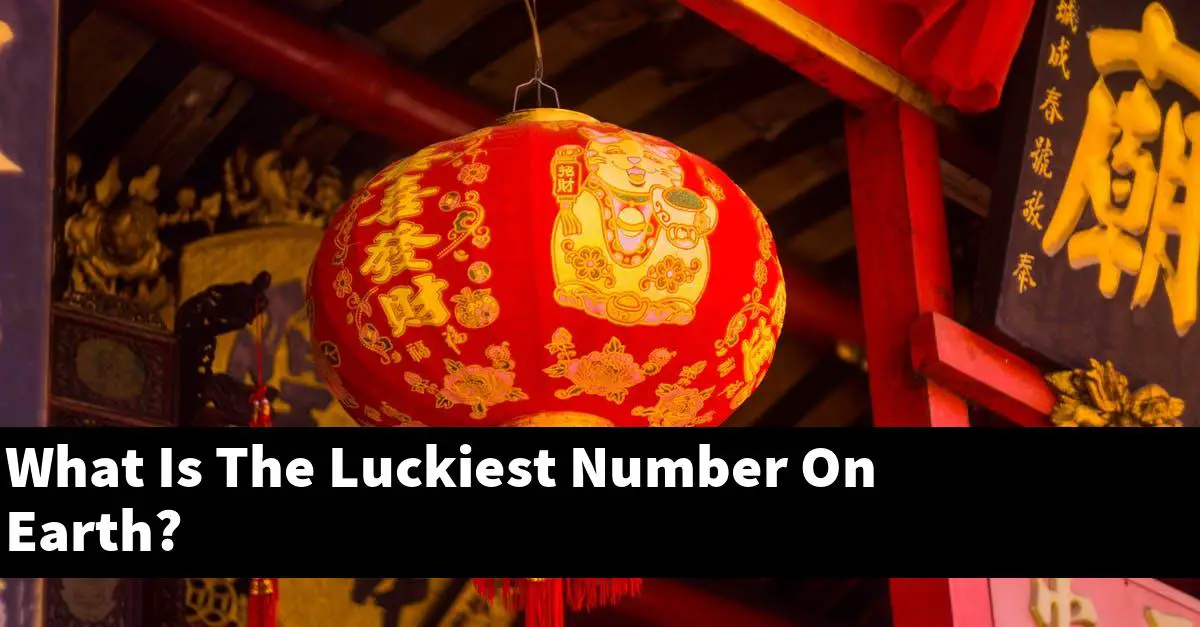The number 7 is considered to be the luckiest number on earth. This is because it is a lucky number in many different cultures and religions.
It is also a lucky number in numerology.
Is 9 a lucky number?
There is no scientific evidence to support the belief that 9 is a lucky number. Some people may believe this because it is the number of letters in the alphabet, and many people believe that some things are linked together by fate.
However, there is no evidence to suggest that 9 is any more likely to be a lucky number than any other number.
What are the 10 luckiest numbers?
According to some superstitions, the 10 luckiest numbers include: 2, 4, 6, 8, 10, 13, 17, 19, 23, 29. Some believe that these numbers are associated with good luck and positive aspects of life. Others believe that these numbers are simply lucky.
Why 7 is the luckiest number?
There are many theories about why 7 is considered to be the luckiest number. One theory is that it is because it is the sum of the first 6 prime numbers.
Another theory is that it is because it is the sum of the first 5 Fibonacci numbers. Another theory is that it is because it is the sum of the first 4 prime numbers that are not divisible by 3. There are many other theories about why 7 is considered to be the luckiest number.
However, the most commonly accepted theory is that it is because it is the sum of the first 3 lucky numbers.
What are the 2 luckiest numbers?
It largely depends on personal preference and opinion. However, some people believe that the lucky numbers are 2 and 4. This is due to the fact that these numbers are both divisible by 2 as well as 4. Additionally, both numbers are considered to be auspicious in many cultures and religions.
What is my lucky number?
There is no definitive answer to this question. Many people believe that the number seven is a lucky number because it is the sum of the first six prime numbers.
Others believe that the number thirteen is a lucky number because it is the sum of the first eleven prime numbers. However, there is no scientific evidence to support any specific belief about what is considered to be lucky.
Why is 7 the luckiest number in the world?
There are many theories as to why 7 is considered to be the luckiest number in the world. Some believe it is because it is the number of days in a week, the number of letters in the English alphabet, and the number of Fibonacci numbers.
Others believe that it is because it is the sum of the first six prime numbers. Whatever the reason, it is clear that 7 is considered to be a lucky number by many.
Is 8 a lucky number?
There is no scientific evidence to suggest that 8 is a lucky number. Some people may believe that 8 is a lucky number because it is the number of letters in the word “eight,” which is seen as a symbol of health and prosperity.
Others may believe that 8 is a lucky number because it is the number of strokes in the Chinese character for ” prosperity.”
Which number is luckiest in world?
There is no scientific evidence to support the notion that any number is luckier than any other number. In fact, there is no evidence to suggest that any number has any special power or ability to bring good luck.
Rather, it is likely that people’s own individual beliefs and perceptions about which number is luckiest play a role in their subjective experiences of luck. Thus, different people may believe that the number six is lucky, while others may believe that the number two is lucky.
There is no right or wrong answer as to which number is luckiest, as the luckiest number for one person may not be the luckiest number for another person.
Conclusion
What may be considered lucky for one person may not be considered as such by another. However, if we look at popular culture and folklore, the number 7 is often cited as the luckiest number on earth.
This is likely due to the fact that it is a prime number and also has religious and spiritual significance in many cultures.


